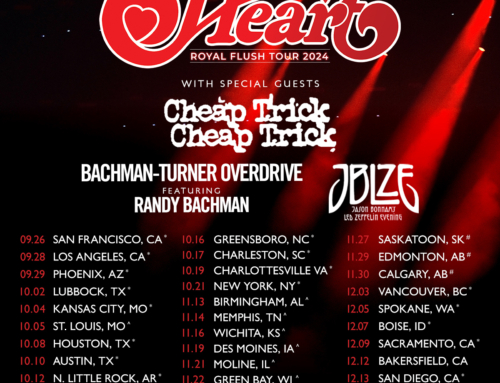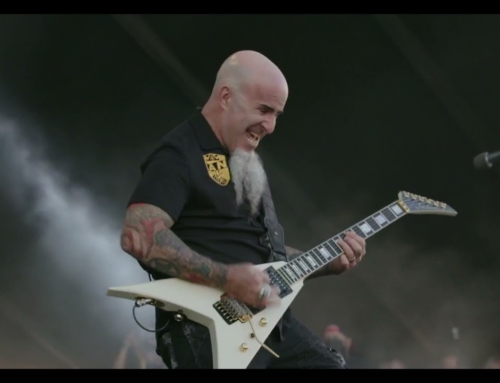In a brand new interview with Australia’s Riff Crew, MÖTLEY CRÜE drummer Tommy Lee was asked about the band’s 1994 self-titled album which featured John Corabi on lead vocals instead of Vince Neil. Speaking about the fact that CRÜE guitarist Mick Mars considers the LP to be one of his favoties from the band’s career, Lee said (see video below): “The sounds on that record, dude. I still listen back and go, ‘My God! Fuck!’ And it is one of my favorite albums too. I’m with Mick on that one. Fuck, what a great record — really, really great record. The songs, the sound…”
On the topic of whether CRÜE would ever perform any material from “Mötley Crüe” live, with Vince on vocals, Lee said: “We’ve tried, trust me. And I get it — it’s hard for somebody to sing [songs] somebody else sang. I get that. It would like, I guess, doing a cover — singing other people’s shit. I don’t know. I get it. That’s a tough one.”
Corabi originally joined CRÜE in 1992 as the replacement for Neil, who was fired due to personal differences. With Corabi on vocals, MÖTLEY CRÜE released one critically acclaimed full-length CD, which ended up being a commercial failure in the wake of grunge despite a Top-Ten placing on the album chart. When Neil returned to the fold in 1997, Corabi was left on his own and formed the band UNION with ex-KISS guitarist Bruce Kulick.
“A lot of fans said, ‘No way I was buying that record when it came out,'” Corabi told CantonRep.com about the “Mötley Crüe” record. “I think we had kind of a die-hard fan base when it came out, but a lot of the people were angry with MÖTLEY for getting rid of Vince, or Vince leaving or whatever happened. But a lot of fans, once Vince came back, saw it, picked it up and ended up really enjoying it. It’s still trudging along and selling and doing its thing. The best thing to me is that it still sounds as relevant now as it did when it came out.”
In a 2012 interview, Mars stated about CRÜE‘s sole Corabi-era album: “I thought that was probably — to me, and I can only speak for me, I think that was probably the best album we’ve done. Musical-wise, the songs, I felt, were strong. And just musically, to me, it was, I guess, my BEATLES ‘White Album’; that’s kind of how I feel about that one. I’m not saying that any of my other albums are crummy or anything like that — I love every album that we did — but that one just has a special thing for me.”
Back in 2015, Lee told Australia’s Beat about “Mötley Crüe”: “It’s huge. Honestly, dude, it’s one of my favorite CRÜE records. Sonically, the songs and the playing on that record is gnarly. We worked our arses off on that record. We had so much to prove: Vince was gone, we had a new singer who also plays guitar and writes and he brought a whole new element to this. But once fans are used to a certain thing, they just didn’t want to know about any other version of MÖTLEY CRÜE. That’s understandable, but when you break it down, that record still sounds rad today.”
In a 2016 interview with Sweden Rock Magazine, CRÜE bassist Nikki Sixx said that writing the “Mötley Crüe” LP with Corabi was a prolonged and difficult experience. He went to call it “a very unfocused record” that was “painful for me, because John Corabi can’t write lyrics, and I had to do all that work.”
Corabi initially responded to Sixx‘s comments by saying that he didn’t “give a shit” about what his ex-bandmate had to say, but later told an interviewer, when asked about it again, “I have no idea why Nikki feels that I’m the biggest piece of shit to roam the Earth.” He then proceeded to take to his Facebook page to claim that he would “officially have nothing to say about any member of MÖTLEY CRÜE ever again,” adding that he was “not backing this bullshit stirring that is happening to start a feud.”
In February 2018, Corabi released a live album of his performance of MÖTLEY CRÜE‘s entire 1994 self-titled album, recorded on October 27, 2015 in Nashville, Tennessee. “Live ’94: One Night In Nashville” documents the album in its entirety along with the bonus track “10,000 Miles”, which was originally released as a bonus track on the Japanese version of the “Quaternary” EP.







